Auckland, New Zealand, had invited the global research and innovation community around broadly defined cloud computing topics to an established four-day double conference. The 12th IEEE/ACM International Conference on Utility and Cloud Computing (UCC 2019) and the 6th IEEE/ACM International Conference on Big Data Computing, Applications and Technologies (BDCAT 2019) happened with their respective main tracks and satellite events. The Service Prototyping Lab at Zurich University of Applied Sciences was present with a workshop, a tutorial and a presentation. This blog post summarises the contributions and the event as a whole.

Keynotes
UCC and BDCAT have a strong and traditional presence of industry and academia keynote speakers – and due to the shared keynote sessions, there are two keynotes per day. The following summarises selected keynotes from this year.
Andrew Sporle gave a much different and unique view on linked data aspects for indigeneous communities. Instead of a government just raising data and owning the resulting repositories, data souvereignty is ensured on technical and process levels by involving community representatives. New partnership data repositories are going to result from this work which adhere both to the FAIR and CARE data sharing principles under shared governance.
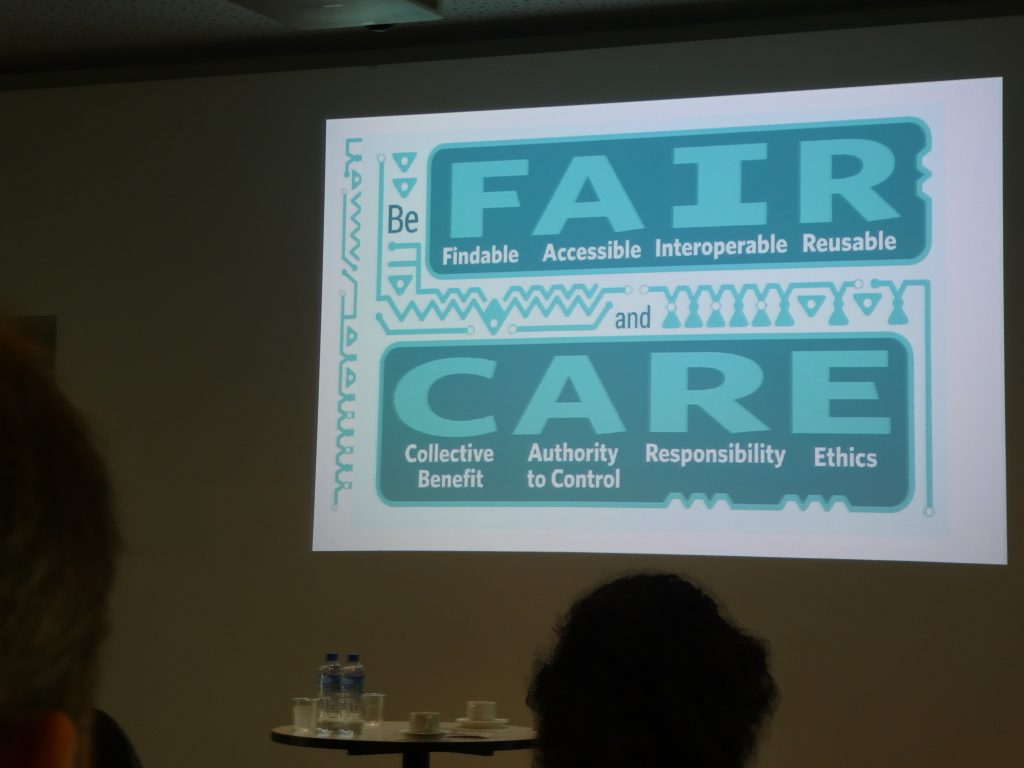
Lydia Chen from TU Delft, and formerly IBM Research Zurich, raised systems-level challenges on machine learning for resource allocation, and challenged the current view on flexibly moving compute tasks between cloud and edge devices. According to her findings, traditional statistical methods with explicit systems knowledge modelled into the process soften outperform deep neural network approaches which need to first learn about system characteristics. Moreover, performing learning in the cloud and testing (inference) at the edge is subject to many challenges, including user differences, data dynamics, user feedback delay and so forth.
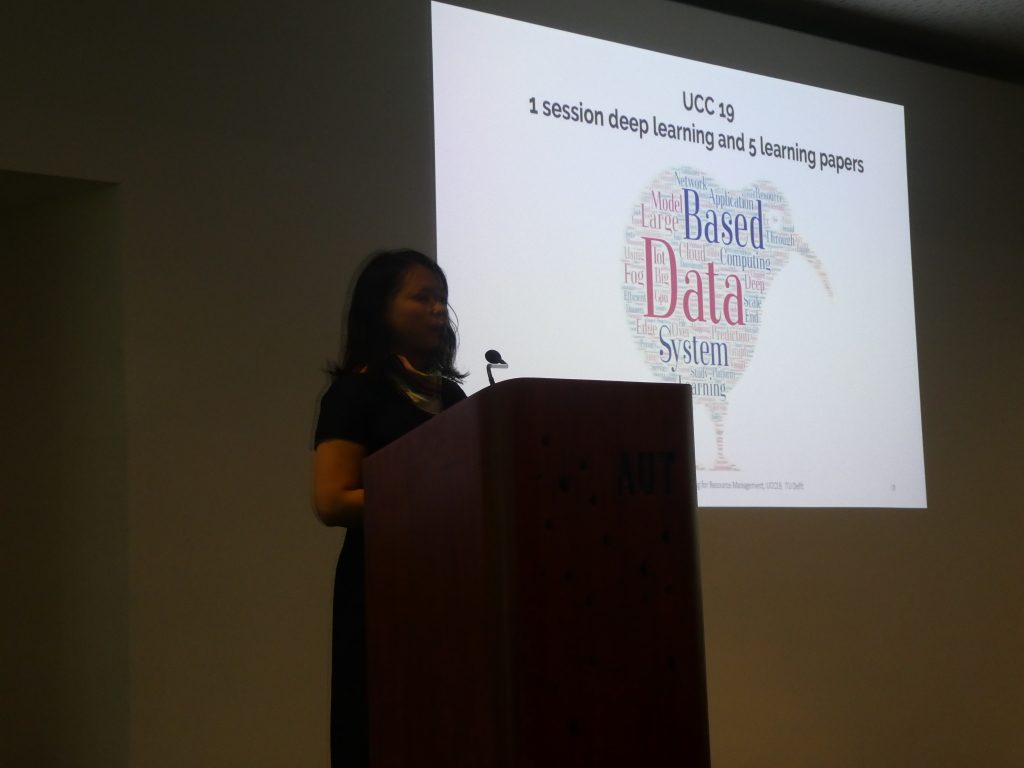
Feilong Wang from Catalyst Cloud, a New Zealand cloud provider, presented his open source work around making OpenStack more cloud native with infrastructure, container management, containers and cloud functions delivered as managed services. Practical insights include replacing Flannel with Calico for faster networking. With Qinling provided by Catalyst, there is an interesting contender to run cloud functions on different systems – including on KNative on Kubernetes on OpenStack… and with an open source auto-healing feature for Kubernetes, they give even GKE a run for their money given that GKE’s code is mostly proprietary.
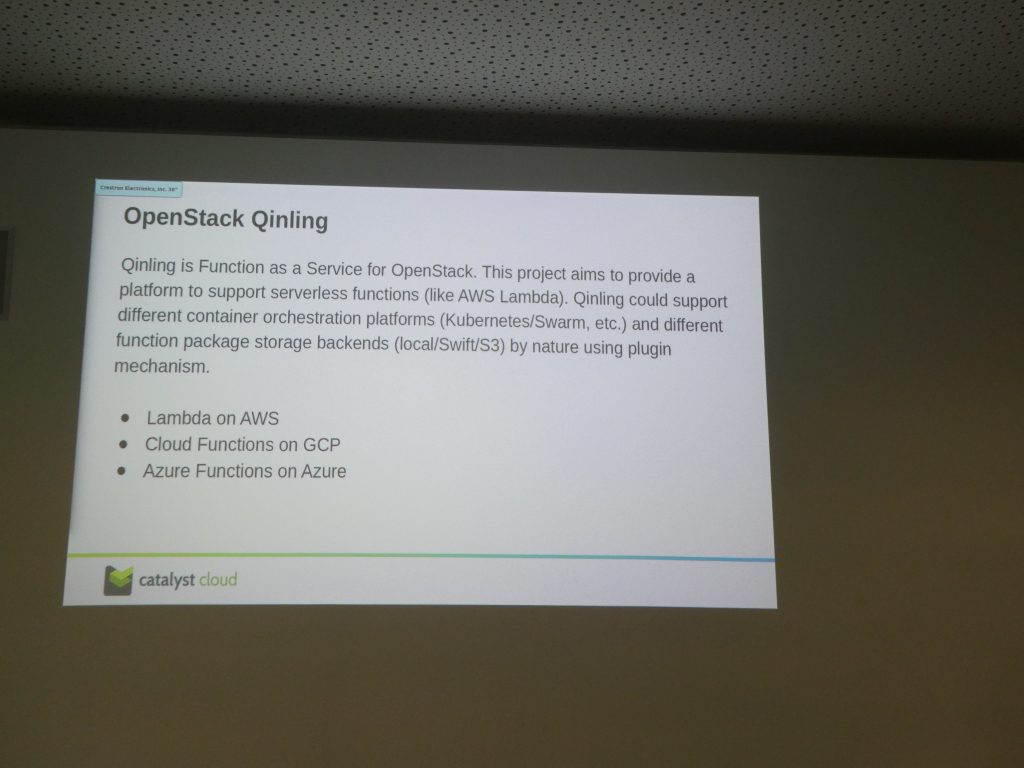
Further keynotes were given by Rajkumar Buyya on new frontiers in cloud/edge/fog for IoT and by Radu Calinescu taming service uncertainty also using ML. A fintech panel complemented the high-profile participants.
Workshops
Two workshops were collocated with this year’s conference. CloudAM 2019 is the longest-running workshop series, running for the 8th time in a row along with UCC. We previously had a paper presentation two years ago, and were glad to be back to present our paper on the European research project Elastest with a cloud-native architecture for end-to-end testing of composite applications.
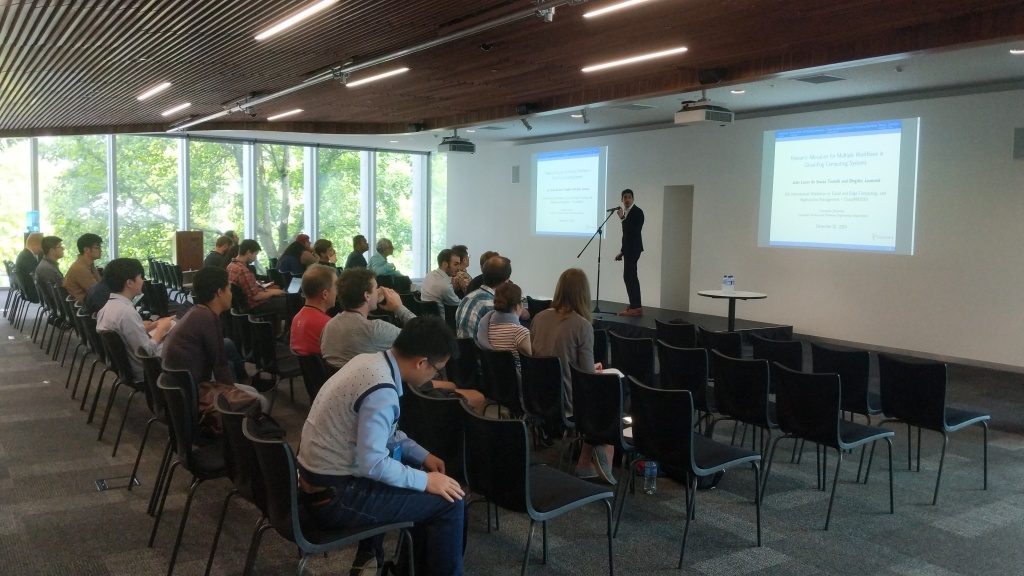
Furthermore, for the second time we organised a proper workshop on the topic of Cloud, IoT and Fog Security – CIFS 2019. With six research papers and one impulse talk, the workshop spanned two sessions and led to a number of discussions around erasures, intrusion detection and auditability. The contributions from Here Data Technology in China, University of Derby in the UK, INRIA/DGA in France and LBNL in the USA, NTNU in Norway, AUT/WIT in New Zealand, John Hopkins University in the USA presented a truly global perspective on the state of technology around secure distributed cloud computing topics.
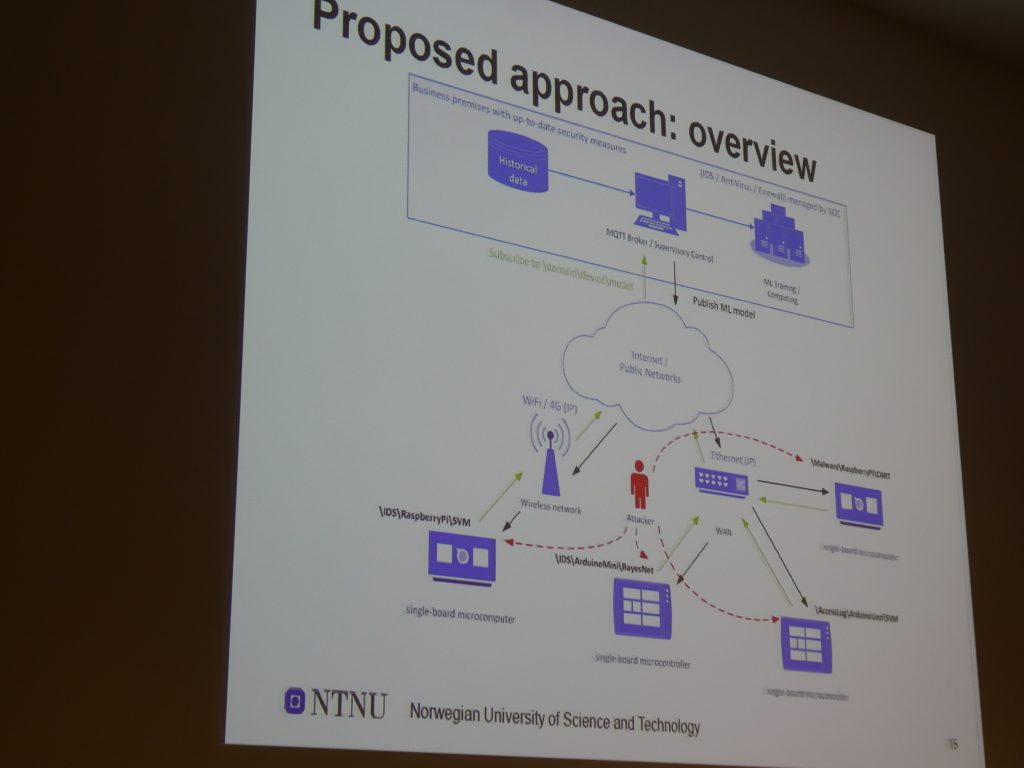
Our own CNAX did unfortunately not receive sufficient submissions. We will analyse the current state of applied and fundamental research around cloud applications to plan future editions.
Tutorials
Three tutorials were offered at the conference: On multi-cloud, on semantic modelling, and from our side on four recent challenges of serverless computing: FaaSification, static and dynamic artefact checks, FaaS knowledge base and mixed-technology composition. Interestingly, on the last point a renewed proposal was made on specifying applications CAMEL during the conference which thus appears to be a potential alternative to TOSCA.
Technical-Scientific Programme
Apart from keynotes, workshops, tutorials, posters and a doctoral research forum, the two technical main tracks make up the backbones of the conferences and provide the most in-depth insights into growing innovation potential.
As usual, UCC and BDCAT enforced a <30% acceptance rate to choose the best technical papers. The trend around paper topics continues to shift towards a broader applicability of cloud service models in secure healthcare, smart buildings with sensors and other domains.
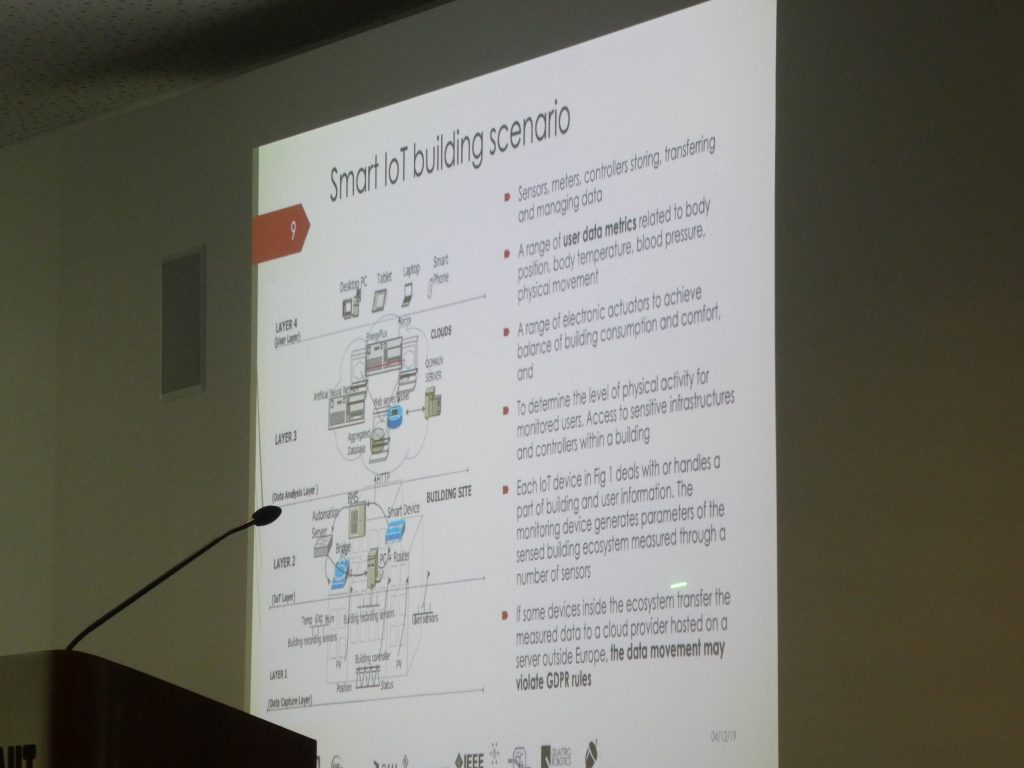
The best paper candidates from UCC have been selected as follows:
- Klervie Toczé, Johan Lindqvist and Simin Nadjm-Tehrani: Performance Study of Mixed Reality for Edge Computing
- Eric Henziger and Niklas Carlsson: The Overhead of Confidentiality and Client-side Encryption in Cloud Storage Systems
- Vladimir Yussupov, Uwe Breitenbücher, Frank Leymann and Michael Wurster: A Systematic Mapping Study on Engineering Function-as-a-Service Platforms and Tools
And the best paper candidates from BDCAT:
- Samuel Armstrong, Kevin Bruhwiler and Sangmi Lee Pallickara: Rapid, Progressive Sub-Graph Explorations for Interactive Visual Analytics over Large-Scale Graph Dataset
- Mitchell Nelson, Zachary Sorenson, Joseph Myre, Jason Sawin and David Chiu: GPU Acceleration of Range Queries over Large Data Sets
- Sota Kato, Takafumi Nakanishi, Hirokazu Shimauchi and Budrul Ahsan: Topic Variation Detection Method for Detecting Political Business Cycles
We congratulate the finalists and winners and will send all of them invites to send extended revised articles to the Journal of Cloud Computing. Moreover, we look forward to UCC and BDCAT 2020 in Leicester, UK!